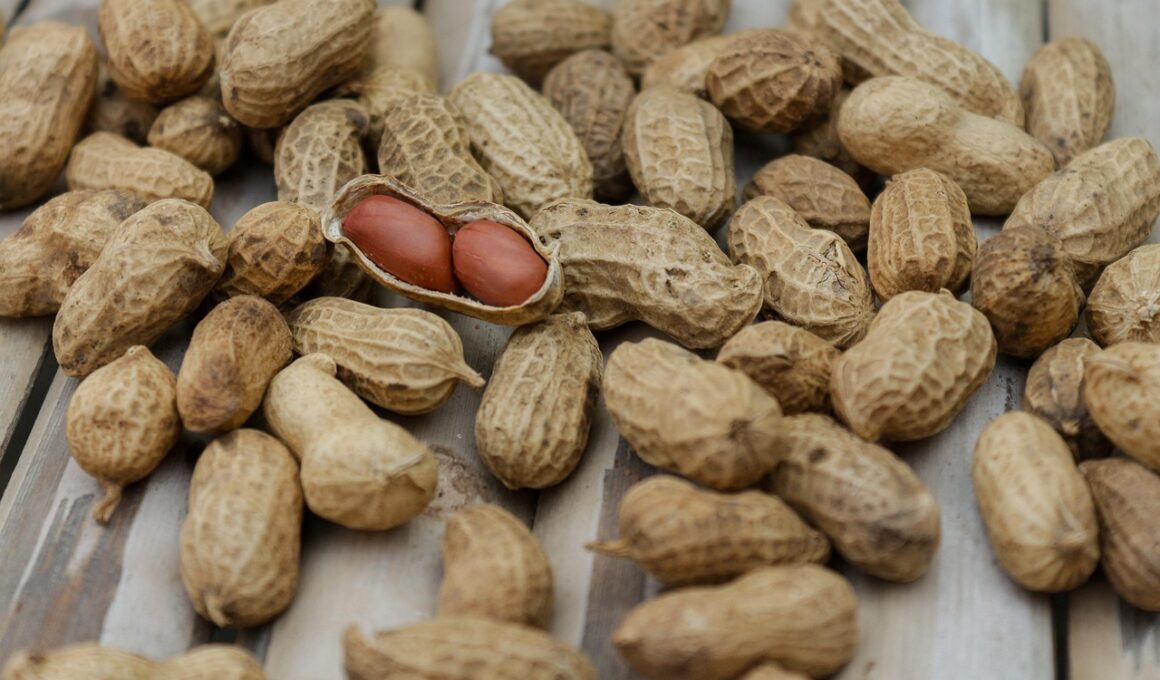Nutrition Tips Every Man Should Know to Enhance Training Results
When it comes to enhancing training results, understanding proper nutrition is crucial for every man. A well-balanced diet supports energy levels, recovery, and muscle growth. First, it’s essential to consume an adequate amount of protein to repair and build muscle tissue. Aim for lean sources such as chicken, fish, turkey, beans, and legumes. Furthermore, timing your protein intake around workouts can maximize protein synthesis. It’s equally important to include carbohydrates for energy; whole grains, fruits, and vegetables should be staples in your diet. Healthy fats are also a key component, as they provide essential fatty acids that improve hormone production. Avocado, nuts, and olive oil are excellent choices. Lastly, hydration cannot be overlooked. Drink plenty of water before, during, and after exercise to maintain peak performance. Adequate hydration aids in nutrient transport and helps prevent fatigue. Supplements can aid your nutrition, but always consult with a healthcare professional before starting any regimen. Remember to maintain variety in your diet, as it not only keeps meals interesting but also ensures you receive different vitamins and minerals necessary for overall health.
Caloric intake plays a pivotal role in achieving your training goals. Understanding whether you need to lose fat or gain muscle determines your caloric needs. For those focusing on weight loss, creating a caloric deficit by consuming fewer calories than your body burns is essential. Conversely, when trying to gain muscle, a caloric surplus is needed, meaning you should eat more than you burn to fuel muscle growth. Additionally, monitoring macronutrient ratios can further optimize results. A good rule of thumb is to aim for a diet consisting of 40% carbohydrates, 30% protein, and 30% fats. This balance helps ensure adequate energy for workouts while promoting muscle recovery and growth. Tracking your food intake through apps or journals can assist in staying accountable to your nutritional goals. As men often train differently from women, tailoring your diet specifically to male physiology can improve your outcomes. Men generally have higher protein needs, so prioritize protein-rich meals. Lastly, never underestimate the importance of rest days; they are equally vital, as recovery allows your muscles to rebuild and grow stronger.
Importance of Micronutrients
While macronutrients are vital, micronutrients like vitamins and minerals shouldn’t be ignored in your training diet. These elements support a range of body functions, from energy production to immune function. For weight training, ensure adequate Vitamin D and calcium to support bone health. Iron is crucial for oxygen transport in the blood and prevents fatigue, especially during intense workouts. Foods rich in iron include red meat, fish, and leafy greens. Omega-3 fatty acids, found in fatty fish like salmon, help reduce inflammation and improve joint health. Don’t forget about antioxidants, such as Vitamin C and E, which combat oxidative stress from intense exercise. Incorporating a variety of colorful fruits and vegetables into your meals can help fulfill these micronutrient needs. Supplementation is another option if dietary sources are insufficient, but consult a healthcare professional before beginning any new supplements. Balance is key; having a comprehensive nutrition plan that accounts for both macronutrients and micronutrients will enhance your training performance and overall well-being.
Pre-workout meals significantly impact your training sessions. It’s crucial to consume appropriate foods before engaging in your workouts. A good pre-workout meal should provide sufficient energy and focus. Aim to eat a meal or snack containing both carbohydrates and protein about 30 to 90 minutes before working out. This could include a banana with nut butter, Greek yogurt with honey, or a smoothie made with fruits and spinach. These foods rapidly provide the energy necessary for exercise without causing any stomach discomfort. It’s also important to listen to your body; if full meals sit uncomfortably, opt for lighter snacks. Post-workout nutrition is equally important for recovery and includes replenishing glycogen stores. Consuming a blend of protein and carbs within an hour after your workout can significantly aid muscle repair. Chocolate milk is a tasty post-workout option rich in nutrients. Remember that everyone’s body is different, so experiment to find what works best for you in boosting your energy and speedier recovery.
Stay Away from Processed Foods
It’s vital to limit processed foods in your diet for optimal training results. Processed foods often contain unhealthy fats, excessive sugars, and additives that can hinder performance and recovery. These foods can lead to weight gain and lack of essential nutrients necessary for muscle growth and recovery. Instead, focus on whole foods that retain their natural nutrients. Eating whole grains, lean proteins, healthy fats, and plenty of fruits and vegetables will provide the nourishment your body craves. Meal prep can help ensure you have nutritious options available and can aid in resisting the temptation of quick, unhealthy snacks. Creating meals in advance reduces the likelihood of grabbing convenience foods on busy days. Opt for natural and unprocessed foods to stay on track with your nutrition goals. Pay attention to ingredient lists, aiming for products with minimal ingredients and recognizable components. Healthy eating is a key factor in boosting workout performance, and making smart food choices will support your training efforts. Emphasize a whole-food approach, as this aids in recovery and fuels your body effectively.
The role of hydration in a man’s training regimen cannot be overemphasized. Dehydration leads to substantial performance drops, making it integral to drink enough water. On average, men should aim for about 3.7 liters of total daily water intake, including beverages and food sources. Even before beginning a workout, ensure you’re adequately hydrated. Consider drinking water or a low-sugar electrolyte solution during longer sessions, as this can help maintain optimal muscle function. Monitoring the color of your urine can be a basic yet effective way to track hydration levels; the darker the color, the more water you likely need. Hydration isn’t just about drinking; it’s about timing too. Consuming fluids at regular intervals throughout the day can aid overall hydration status. Consuming caffeinated drinks should be done in moderation, as they can have diuretic effects. After workouts, replenish lost fluids by drinking water or having electrolyte-rich beverages. This simple habit can improve recovery and performance dramatically. Adopt hydration strategies that suit your lifestyle, maximizing your training results.
Conclusion
In conclusion, understanding and implementing proper nutrition significantly influences training results for men. Focusing on balanced macronutrient intake, adequate micronutrients, and hydration will optimize performance, recovery, and overall health. Avoiding excessive processed food will provide far better nutritional benefits, supporting the training regimen effectively. Remember that consistency is key in nutrition; developing healthy eating habits takes both time and commitment. Track your food intake, stay conscious of your goals, and adjust your nutrition plans as needed. Consult a professional if you require tailored advice fitting your unique training needs. Engaging in regular physical activity while prioritizing nutrition creates a solid foundation for reaching your fitness objectives. Explore different foods and meals to find what keeps you satisfied and energized during workouts. Finally, remember that nutrition and training go hand in hand; prioritizing both will ensure results and improve your overall quality of life. By following these tips and integrating them into your routine, you will set yourself on a path toward improved fitness and health.
By following these tips, you are sure to unlock your potential and make the most out of your training sessions. Nutritious meals, proper hydration, and a balanced approach will not only enhance your workouts but also support your long-term goals. Each individual’s needs may vary, so personalizing your nutrition to suit your lifestyle can lead to the best results. Have patience and stay committed as you establish a routine that works for you. Each step you take towards better nutrition can have a profound impact on your training outcomes. With dedication and the right knowledge, achieving your fitness objectives becomes within reach. Always remember, good nutrition complements hard work in the gym or on the field. Keep experimenting with different meal options to maintain your enthusiasm for healthy eating. Surround yourself with support, whether from friends, family, or nutrition communities, as encouragement can significantly aid your journey. Embrace the process, and soon you will see the fruits of your labor in enhanced performance and physique. By emphasizing nutrition in your training regimen, you will achieve a harmonious balance that fosters both physical health and fitness.


